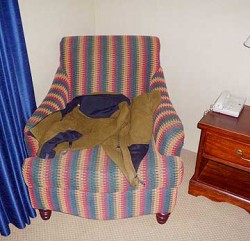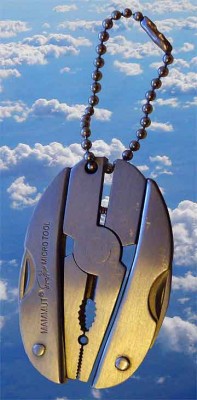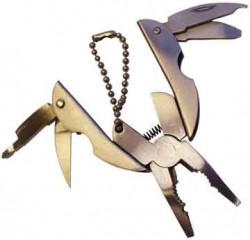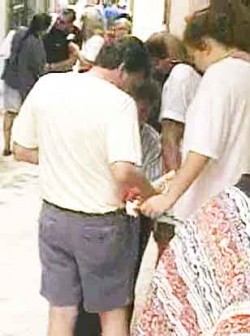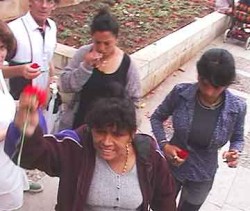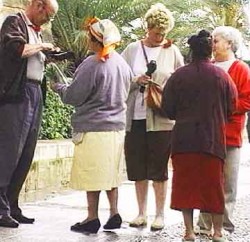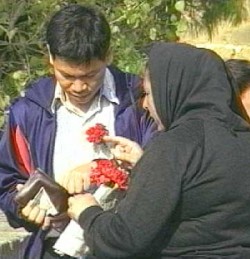
Called in to pickpocket goodies from the massive Munich Oktoberfest crowd, Bob and I, just back from Japan to do a show for Monsanto in Las Vegas, raced to catch the last two days of the bawdy Bavarian festival. (Tokyo, Vegas, Munich in five days. Thank goodness for business class.)
Bleary-eyed, we were surprised to find the RTL TV Extra crew at the airport, cameras rolling. They whisked us straight to the heart of the party for 8 million, pausing only to slip Bob into lederhosen. Most people there wore traditional costumes: men in lederhosen, women in dirndls.

It was noon, and the revelers had been drinking since 10 a.m. Some stumbled along, supported by friends. Others sat on the ground, heads in hands. No wonder: beer is sold by the liter mug and the whole idea is to drink as much as possible. The gutters ran with pee and puke.

Right away Bob and I noticed “suspects”—probably pickpockets, in our opinion—scanning the crowds. Time was short though; Bob was supposed to steal from sober partiers. No time for thiefhunting. We stood on a grassy slope among the sick and sleeping, the singing, the happy, the tired. A man lay sprawled face down at our feet, right arm extended clutching his cellphone like a torch, like a fallen statue.
“Let me have this one,” our producer said with a wink. He bent and slipped the phone from the man’s grip. Too easy. Unable to rouse the plastered guy, we finally stuffed the phone into his back pocket and considered it safer than it had been.
Bob and I surveyed the mob, looking for likely marks. We had a to-do list of items to steal; and we hoped for victims who’d be good for television. We didn’t want the type who’d punch Bob in the face if they caught on— granted, though, they’d be great for television.
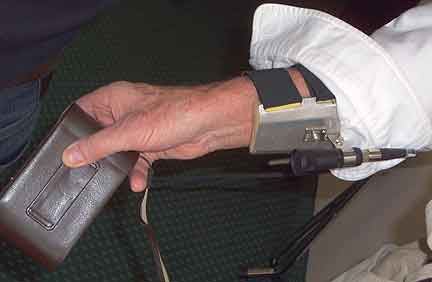
In preparation for this challenge, our special cameraman, Frank Jeroschinsky, built a fancy “wrist-cam,” a lipstick camera he strapped to Bob’s arm with a cord that ran up Bob’s sleeve and into a backpack, where the recording device was stashed. The device was meant to capture the steal as Bob’s hand entered a purse or pocket. We didn’t have the heart to tell Frank how many cameramen before him had rigged similar set-ups. Bob just ran through the tests and trials and Frank saw for himself the disappointing results.

Interesting to watch the regimented Germans let loose. As we mingled, futilely trying to blend in, we saw heaps of humanity crumpled on the ground, and those attending to them. A policeman tried to rouse a man splayed on a sidewalk. A first aid team huddled around an unconscious body. Friends supported friends as best they could.
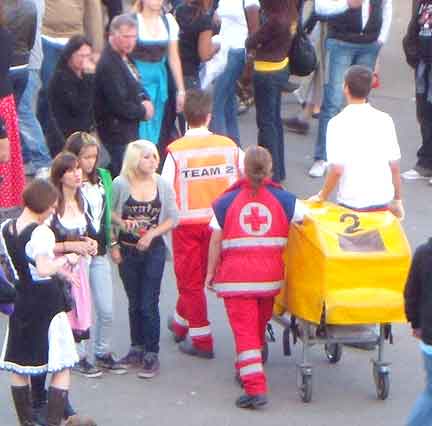
Before Oktoberfest was over, Munich police had arrested more than 80 pickpockets. They had come from many surrounding countries, as expected. A more inviting gathering for thieves cannot be imagined. Celebrants with traveling cash flooded in from all across Europe and beyond. Flocks of Russians had flown in. Grassy parking lots were lined with hundreds of buses from Italy, Czech Republic, Spain, and more.

Expecting a flood of pickpockets from Romania, authorities had also imported a special team of Romanian police.

What struck me among all the drunk and sick and out-of-control partiers was the overall peacefulness. In two long days I didn’t see a single fight, didn’t hear shouts, insults, or curses.



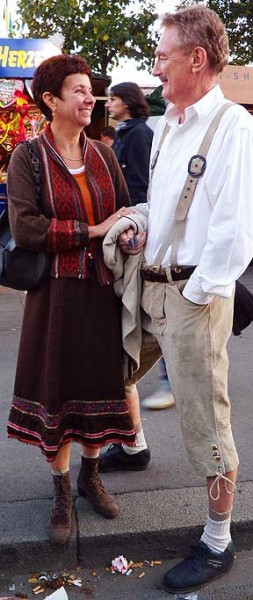
RTL Television’s Extra segment was broadcast the evening of October 5 to a 27% audience share. 17% has been their maximum, so it’s considered a huge success. Although it’s not officially online, we expect to get a copy of the piece shortly. Perhaps we’ll upload it. If so, I’ll link it here.




